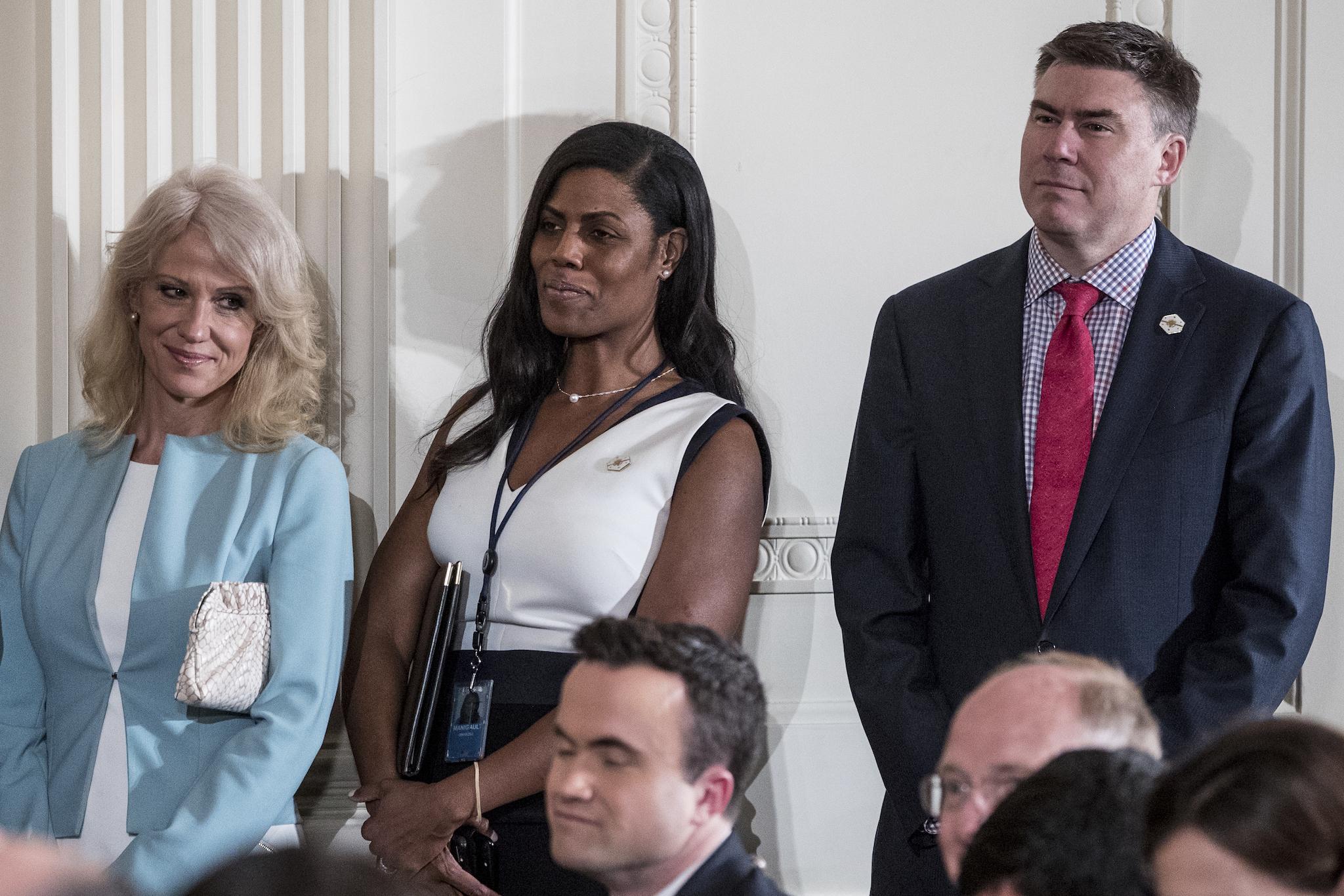Donald Trump 'considering White House shakeup' amid growing legal and political battles
White House communications director Michael Dubke is the first prominent member of the President’s communications staff to resign

Your support helps us to tell the story
From reproductive rights to climate change to Big Tech, The Independent is on the ground when the story is developing. Whether it's investigating the financials of Elon Musk's pro-Trump PAC or producing our latest documentary, 'The A Word', which shines a light on the American women fighting for reproductive rights, we know how important it is to parse out the facts from the messaging.
At such a critical moment in US history, we need reporters on the ground. Your donation allows us to keep sending journalists to speak to both sides of the story.
The Independent is trusted by Americans across the entire political spectrum. And unlike many other quality news outlets, we choose not to lock Americans out of our reporting and analysis with paywalls. We believe quality journalism should be available to everyone, paid for by those who can afford it.
Your support makes all the difference.The resignation of the White House's communications director may be the first in a series of changes to the West Wing as the Trump administration attempts to fight growing legal and political threats while also trying to push forward the President’s legislative agenda.
Mike Dubke is the first prominent member of Donald Trump's communications staff to resign amid fallout from scandals that continue to rock the White House.
Meanwhile, the press secretary Sean Spicer will reportedly hold on to his position, but there are expected to be fewer on-camera briefings.
“I think the President is very pleased with his team and he has a robust agenda,“ Mr Spicer told reporters on Tuesday, in a briefing that again featured an intense back-and-forth between the press secretary and reporters regarding the investigation into Trump campaign advisers and the Russian government.
“Ultimately the best messenger is the President himself,” Mr Spicer said. “He's always proven that he is the best messenger not just for what he wants to articulate but that the American people resoundingly chose him as their President – because he understands the frustrations and concerns and values of the American people and he is probably the best person to communicate that.”
In a statement, White House Chief of Staff Reince Priebus said Mr Dubke tendered his resignation just before Mr Trump departed for his first official trip abroad. Mr Dubke “offered to remain onboard until a transition is concluded,” Mr Priebus said.
Unlike many top officials in the White House, Mr Dubke was not part of the Trump 2016 campaign. He joined the administration about a month after the President’s inauguration in January and has reportedly struggled to mesh well with Mr Trump.
In the past month, the President’s communications team has been working on the frontlines of the administration to deal with the fallout from Mr Trump’s firing of FBI Director James Comey, alleged “leaks” , the President’s disclosure of classified information to Russian officials, and Mr Trump’s potential obstruction of justice by asking Mr Comey to drop an FBI investigation into former National Security Advisor Michael Flynn.
Mr Trump returned to Washington on Saturday after his nine-day, five-country tour to face more questions about alleged communications between Jared Kushner, his son-in-law and White House adviser, and Russia's ambassador to Washington, Sergey Kislyak.
All of the White House-centred drama has begun to irritate congressional leaders, who are hoping to continue focusing on healthcare and tax reform when members of Congress return to Capitol Hill next week.
“I think we could do with a little less drama from the White House on a lot of things so that we can focus on our agenda, which is deregulations, tax reform and repealing and replacing Obamacare,” Senate Majority Leader Mitch McConnell said earlier in May.
In the background, Mr Trump’s advisers are reportedly beginning to establish a crisis-control communications operation to separate inquiries regarding the Russia investigation and related scandals from issues connected to policy and legislation.
This approach is similar to one taken by President Bill Clinton, who established a war room to deal with various matters including the Monica Lewinsky scandal. Mr Clinton was eventually impeached for lying under oath about his affair with White House intern Ms Lewinsky.
Joel Johnson, a senior adviser to Mr Clinton from 1999 to 2001 and who worked with the White House throughout the impeachment proceedings, said that the Clinton administration’s establishment of a war room “allowed the business of governing to go on”.
“While the press secretary generally fielded questions during the daily press briefing, the bulk of the day-to-day incoming questions unrelated to the other business of government all went to a separate communications and rapid-response team basically embedded in the White House counsel’s office,” Mr Johnson said.
“You have to find a way to separate and distance the core White House staff from that level of intensity on business unrelated to the President’s agenda.”
Mr Johnson noted that a White House staff shake-up is hardly a new concept and is by no means unique to the Trump administration.
“Sometimes it’s a tactic to sort of change the conversation,” Mr Johnson said. “Sometimes it’s necessary to restack the talent coming in.”
“My guess is that this would be a little bit of both,” he said, referring to the drama currently playing out at the White House.
Join our commenting forum
Join thought-provoking conversations, follow other Independent readers and see their replies
Comments